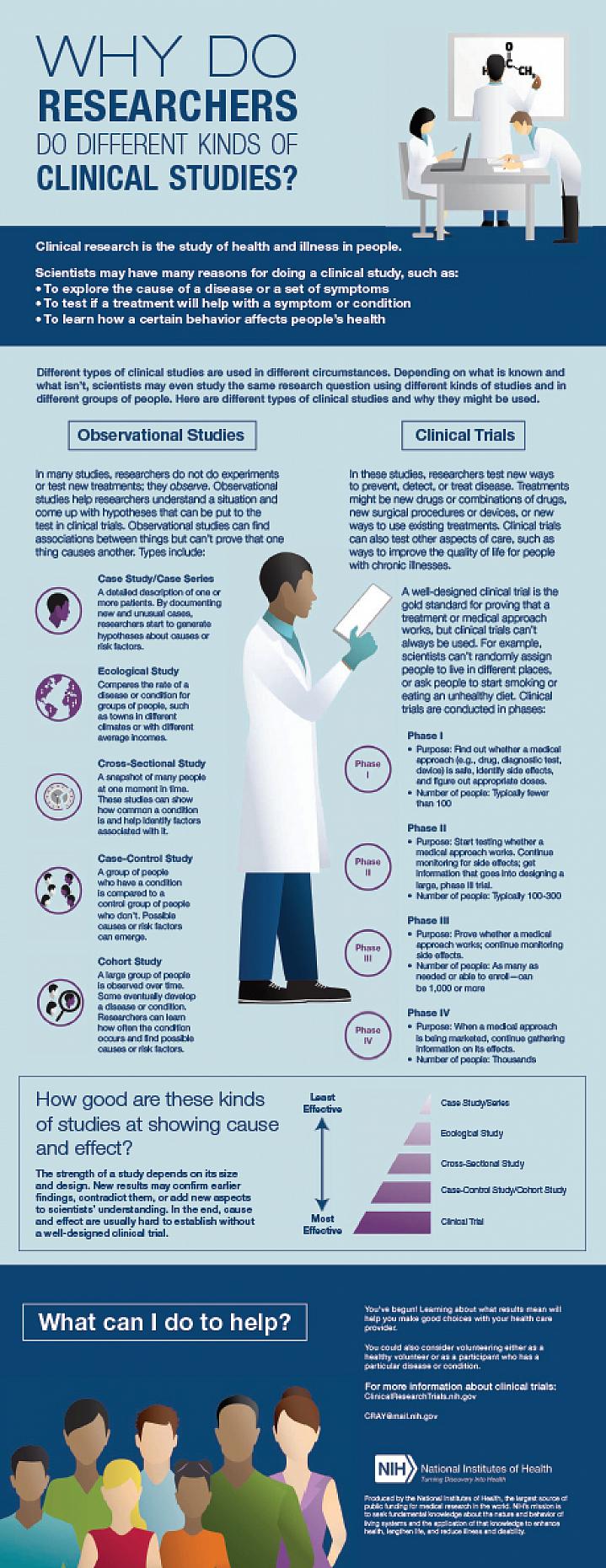Health Capsule
When Clinical Research Is in the News

Have you ever heard that something, like a gene or toxin, can cause disease? Or that a drug can prevent illness? How about a behavior, like too much sitting, that’s “linked” to health problems? Such news reports are often based on some type of clinical research, which is the study of health and illness in people.
There are many types of clinical studies. Each has its own strengths and weaknesses. Knowing more about the different types can help you think critically about the health and research news you see and hear.
NIH has developed a new one-page guide, Why Do Researchers Do Different Kinds of Clinical Studies?, that outlines different types of clinical studies and explains why scientists might use them. The guide notes that a study’s strength depends on its size, methods, and design.
The ideal way to prove that a treatment works is through a well-designed “randomized controlled trial.” In such trials, people are randomly assigned to either a “treatment” or a “control” group for comparison.
Other clinical studies involve observing people to find associations or links. For instance, a “cohort study” may follow many people over time to learn how a disease arises and find possible risk factors. These observational studies can find “links“ but can't prove the cause of disease.
Read, download, or print the one-page clinical research guide in English or Spanish.
NIH Office of Communications and Public Liaison
Building 31, Room 5B52
Bethesda, MD 20892-2094
nihnewsinhealth@od.nih.gov
Tel: 301-451-8224
Editor: Harrison Wein, Ph.D.
Managing Editor: Tianna Hicklin, Ph.D.
Illustrator: Alan Defibaugh
Attention Editors: Reprint our articles and illustrations in your own publication. Our material is not copyrighted. Please acknowledge NIH News in Health as the source and send us a copy.
For more consumer health news and information, visit health.nih.gov.
For wellness toolkits, visit www.nih.gov/wellnesstoolkits.